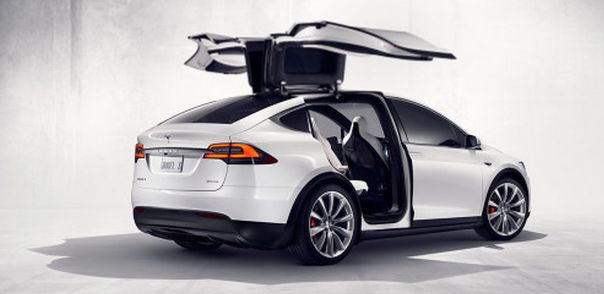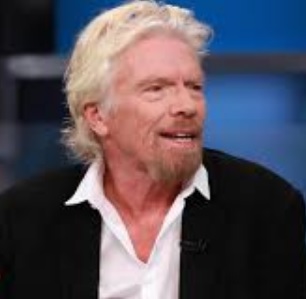Tesla Model X recall: Tesla is recalling about 11,000 Model X electric SUVs to correct a problem in the second-row seats. For the Model X units manufactured between  Oct. 28, 2016, and Sept. 1, 2017 with a second row seat that folds down flat, Tesla will be correcting an error that could mean the second row seats would move forward in a crash. The problem stems from incorrectly adjusted seat cables and was discovered through internal testing. It only affects about 3% of those vehicles. The electric automaker is taking on the voluntary recall through a 10-minute procedure done by mobile service operators. The company hasn’t received reports of any issues or accidents related to the problem; customers were to be alerted starting yesterday.
Oct. 28, 2016, and Sept. 1, 2017 with a second row seat that folds down flat, Tesla will be correcting an error that could mean the second row seats would move forward in a crash. The problem stems from incorrectly adjusted seat cables and was discovered through internal testing. It only affects about 3% of those vehicles. The electric automaker is taking on the voluntary recall through a 10-minute procedure done by mobile service operators. The company hasn’t received reports of any issues or accidents related to the problem; customers were to be alerted starting yesterday.
What Ford learned from workplace charging: Ford Motor Co. will be tripling its electric vehicle charging stations available to its employees in North America from 200 to 600 chargers over the next three years. The first 200 have been in place for three years and have been the source of data on charging habits used by the automaker in its electrification strategy. Ford reported that access to workplace charging appears to be crucian for EV owners and can influence their purchase decisions. Bringing more workplace charging will be part of mass market adoption of EV technology for Ford and the overall industry, the company said. Through early August, Ford’s charging network had provided about 2 million miles of electric driving to its employees.
VW electric trucks and buses: Volkswagen Group’s truck and bus division will be investing about $1.7 billion into new technology to support battery electric commercial vehicles targeted at urban markets with growing concern over poor air quality. Andreas Renschler, head of the unit, said Wednesday that the investment will go into electric drivetrains, autonomous systems, and cloud-based software. The new technology will end up in systems used by the company’s U.S. truck affiliate, Navistar International. In Europe, it will go to the company’s MAN and Scania nameplates for all-electric buses that will come to European cities next year, he said. That goes with offerings to bus operators that include biodiesel, hybrid systems, and natural gas vehicles.
Clean vehicle jobs: A new interactive map shows that the Midwest, Northeast, and California have been at the heart of job creation and economic growth in clean vehicles. As the federal standards for fuel economy and emissions are under review, the BlueGreen Alliance Foundation issued a study looking at what’s happened since the federal standards were finalized five years ago. The map highlights advanced vehicle, component, and material manufacturing facilities, and jobs across the U.S. It was done to provide a local-level view of innovation across the industry that supports energy security, economic growth, and global competitiveness.
California supports more clean vehicle programs: On Tuesday, California Gov. Jerry Brown signed several bills to strengthen California’s zero- and near-zero-emission vehicles. One of them, A.B.739, requires at least 15% of specified heavy-duty vehicles newly purchased by state agencies to be zero emission vehicles beginning in 2025; and at least 30% of those vehicles to be ZEVs beginning in 2030. S.B.498 will require at least 50% of the state’s light-duty vehicle fleet to be ZEVs by 2025, up from the current goal of 25% by 2020. The bill also requires the California Air Resources Board to develop policies and programs that will increase ZEVs in private-sector fleets. Several other assembly bills were signed into law, including one that allow certain clean vehicles to access high-occupancy vehicle lanes, and another authorizing local jurisdictions to dedicate on-street parking spaces for electric vehicle charging.
USPS going electric: The U.S. Postal Service is getting ready to bring in electrified delivery trucks, according to photos received by Trucks.com. One of the publication’s readers sent in photo of a road tests being done about 30 miles northwest of Washington, D.C., of a USPS badged mail delivery truck likely coming from Workhorse Group and truck body manufacturer VT Hackney. They’re among five entries into the USPS’ Next Generation Delivery Vehicle Program. Workhorse confirmed it was their truck in a tweet Monday after the story was first published in Trucks.com. Workhorse will supply the powertrain and chassis, and VT Hackney will build the body if they win the contract with USPS.
Richard Branson investing in Hyperloop One: Hyperloop One has gained funding from billionaire Richard Branson and will be changing its name to reflect it. The  company announced Thursday it will be renamed Virgin Hyperloop One, and it followed a significant but undisclosed investment by the Virgin Group founder. Based in downtown Los Angeles, Hyperloop One comes from a concept released a few years ago by Tesla and SpaceX CEO Elon Musk. The transport system will carry passengers and cargo in pods through tubes at speeds of more than 250 miles per hour; and that could eventually go as high as 750 miles per hour. The company has been testing its pods in Nevada. Branson’s Virgin Galactic has been setting up office space in Southern California and will be directly competing with SpaceX in the space transport business.
company announced Thursday it will be renamed Virgin Hyperloop One, and it followed a significant but undisclosed investment by the Virgin Group founder. Based in downtown Los Angeles, Hyperloop One comes from a concept released a few years ago by Tesla and SpaceX CEO Elon Musk. The transport system will carry passengers and cargo in pods through tubes at speeds of more than 250 miles per hour; and that could eventually go as high as 750 miles per hour. The company has been testing its pods in Nevada. Branson’s Virgin Galactic has been setting up office space in Southern California and will be directly competing with SpaceX in the space transport business.



